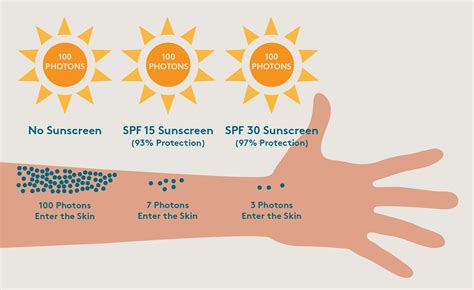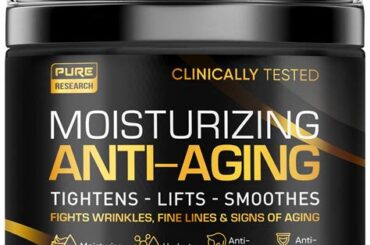Why sunscreen is essential for skin health
Sunscreen is a crucial element in maintaining healthy skin. It provides protection against the damaging effects of UV rays, which can lead to premature aging, sunburn, and even skin cancer. Understanding the importance of sunscreen and incorporating it into your daily skincare routine is essential for long-term skin health.
One of the main reasons why sunscreen is essential is its ability to shield the skin from harmful UV rays. The sun emits two types of UV radiation: UVA and UVB rays. UVA rays penetrate deep into the skin, causing wrinkles, age spots, and can even contribute to the development of skin cancer. UVB rays, on the other hand, primarily affect the outermost layers of the skin and are the main cause of sunburns.
By wearing sunscreen with a high SPF (Sun Protection Factor) and broad-spectrum protection, you can effectively block both UVA and UVB rays, providing a shield for your skin. Sunscreen acts as a barrier, absorbing or reflecting the harmful radiation before it can penetrate and damage the skin cells. This can significantly reduce the risk of sunburn, skin cancer, and other sun-related skin problems.
The benefits of sunscreen go beyond sun protection
While protecting the skin from the sun’s harmful rays is undoubtedly the primary purpose of sunscreen, it offers additional benefits that contribute to overall skin health.
- Prevents premature aging: Exposure to the sun’s rays accelerates the aging process, leading to wrinkles, fine lines, and saggy skin. By wearing sunscreen daily, you can help prevent these signs of aging, keeping your skin looking youthful and supple.
- Reduces the risk of skin cancer: Skin cancer is one of the most common types of cancer, and UV exposure is a major risk factor. Regular use of sunscreen can significantly lower the risk of developing skin cancer.
- Prevents sunburn: Sunburn not only causes short-term discomfort but can also damage the skin in the long run. Sunscreen acts as a barrier and prevents your skin from getting burned, reducing the risk of peeling, blistering, and long-term damage.
Choosing the right sunscreen for your skin type
When it comes to choosing sunscreen, it’s essential to consider your skin type to ensure maximum effectiveness and comfort.
| Skin Type | Sunscreen Recommendation |
|---|---|
| Dry skin | Look for a sunscreen with moisturizing properties, such as a lotion or cream. Opt for a higher SPF to provide extra hydration and protection. |
| Oily/acne-prone skin | Choose a lightweight, gel-based or oil-free sunscreen that won’t clog pores. Look for terms like “non-comedogenic” or “oil-free” on the label. |
| Sensitive skin | Opt for a mineral-based sunscreen with ingredients like zinc oxide or titanium dioxide. These ingredients are less likely to cause irritation or allergic reactions. |
Remember, sunscreen should be applied generously and reapplied every two hours or more frequently if you’re sweating or swimming. Protecting your skin from the sun’s harmful rays by incorporating sunscreen into your daily skincare routine is a simple yet significant step towards maintaining optimal skin health.
Understanding the damaging effects of UV rays
UV rays are a form of electromagnetic radiation that is emitted by the sun. While some exposure to the sun is necessary for our body to produce vitamin D, prolonged or excessive exposure to UV rays can have damaging effects on our skin. It is important to understand these damaging effects in order to protect our skin and maintain its health.
One of the primary damaging effects of UV rays is sunburn. When our skin is exposed to excessive UV radiation, the outer layer of the skin gets burned, causing redness, pain, and peeling. Sunburn not only causes short-term discomfort but also increases the risk of developing skin cancer in the long run.
UV rays can also penetrate the deeper layers of our skin, damaging the DNA in our skin cells. This can lead to the development of skin cancer over time. Skin cancer is one of the most common types of cancer worldwide, and UV radiation is a major risk factor for its occurrence.
In addition to sunburn and skin cancer, UV rays can also accelerate skin aging. Exposure to UV radiation breaks down the collagen and elastin fibers in our skin, leading to wrinkles, sagging, and uneven pigmentation. These visible signs of aging can make us look older than we actually are.
In order to protect our skin from the damaging effects of UV rays, it is crucial to use sunscreen regularly. Sunscreen forms a barrier on our skin, reflecting or absorbing the UV radiation and preventing it from penetrating into the deeper layers. When choosing a sunscreen, it is important to look for a broad-spectrum sunscreen that provides protection against both UVA and UVB rays. Additionally, the sunscreen should have a high SPF (sun protection factor) to ensure maximum protection.
Incorporating sunscreen into our daily skincare routine is essential for maintaining skin health. Applying sunscreen generously on all exposed areas of the skin, at least 15-30 minutes before sun exposure, and reapplying every two hours can significantly reduce the risk of sunburn, skin cancer, and premature aging. Remember to apply sunscreen even on cloudy days, as UV rays can still penetrate through the clouds.
Understanding the damaging effects of UV rays is the first step towards protecting our skin from their harmful consequences. By incorporating sunscreen into our daily routine and taking other sun protection measures like seeking shade, wearing protective clothing, and using sunglasses, we can ensure the long-term health and beauty of our skin.
How to choose the right sunscreen for your skin
Choosing the right sunscreen for your skin is crucial in ensuring your skin’s protection against the harmful effects of the sun’s UV rays. With countless options available in the market, it can be overwhelming to determine which sunscreen is best suited for your specific skin needs. However, by considering a few key factors and understanding the different types of sunscreens available, you can make an informed decision and safeguard your skin from potential damage.
1. Type of Sunscreen: There are two main types of sunscreen: physical (also known as mineral) and chemical. Physical sunscreens contain active ingredients like zinc oxide and titanium dioxide, which form a barrier on the skin’s surface to reflect and scatter UV rays. On the other hand, chemical sunscreens work by absorbing and converting UV rays into heat. Both types are effective, but people with sensitive skin may prefer physical sunscreens as they are less likely to cause irritation.
2. Sun Protection Factor (SPF): The SPF number indicates the level of protection a sunscreen offers against UVB rays, which are primarily responsible for sunburns. It is recommended to choose a sunscreen with an SPF of 30 or higher to ensure sufficient protection. Keep in mind that SPF only measures the sunscreen’s effectiveness against UVB rays and not UVA rays, which can also cause skin damage. Therefore, it is crucial to look for broad-spectrum sunscreens that protect against both types of rays.
3. Consistency and Application: Sunscreen comes in various forms, including lotions, creams, gels, sprays, and sticks. Consider your skin type and personal preference when selecting a sunscreen consistency. For example, if you have dry skin, a moisturizing lotion or cream may be more suitable. For oily or acne-prone skin, a lightweight gel or oil-free formula can help prevent clogged pores. Additionally, pay attention to how the sunscreen is applied. It should be easy to spread evenly on the skin, without leaving a heavy or greasy residue.
Incorporating sunscreen into your daily skincare routine is essential for maintaining healthy and youthful skin. By carefully selecting a sunscreen that suits your skin type, offers broad-spectrum protection, and is comfortable to wear, you can confidently enjoy the outdoors while keeping your skin shielded from the damaging effects of the sun.
Incorporating sunscreen into your daily skincare routine
Sunscreen is an essential part of any skincare routine. It helps to protect the skin from the damaging effects of the sun’s UV rays, which can lead to premature aging, wrinkles, and even skin cancer. Incorporating sunscreen into your daily skincare routine is a simple but effective way to keep your skin healthy and protected.
There are different types of sunscreens available in the market, so choosing the right one for your skin type is crucial. Look for a broad-spectrum sunscreen that provides protection against both UVA and UVB rays. UVA rays can penetrate deep into the skin and cause long-term damage, while UVB rays are responsible for sunburn. It’s recommended to choose a sunscreen with a sun protection factor (SPF) of 30 or higher. If you have sensitive skin, opt for a mineral-based sunscreen with ingredients like zinc oxide or titanium dioxide.
Now, let’s talk about how to incorporate sunscreen into your daily skincare routine. The first step is to cleanse your face thoroughly, using a gentle cleanser suited for your skin type. After cleansing, apply a moisturizer to hydrate your skin. Once the moisturizer has fully absorbed into your skin, it’s time to apply sunscreen. Take a pea-sized amount of sunscreen and gently massage it onto your face and neck, making sure to cover all exposed areas.
In addition to facial application, don’t forget to apply sunscreen to other exposed parts of your body, such as your arms, legs, and chest. If you’re planning to spend an extended amount of time outdoors, it’s important to reapply sunscreen every two hours to ensure continuous protection. Remember, even on cloudy days, UV rays can still penetrate through the clouds and reach your skin, so it’s essential to wear sunscreen regardless of the weather.
To make it easier to incorporate sunscreen into your daily skincare routine, try to find a moisturizer or makeup product that already includes SPF. This way, you can streamline your routine and ensure that you’re adequately protected from the sun’s harmful rays. Remember that using sunscreen is just one part of a comprehensive sun protection strategy. It’s also important to seek shade during the peak hours of sunlight, wear protective clothing, and use sunglasses to shield your eyes from UV rays.
The long-term benefits of regular sunscreen use
Using sunscreen is not just a temporary solution to protect your skin from the harmful effects of the sun. In fact, regular use of sunscreen can have long-term benefits that go beyond immediate sunburn prevention. By incorporating sunscreen into your daily skincare routine, you can help prevent skin damage, reduce the risk of skin cancer, and maintain a youthful and healthy complexion.
Sunscreen works by blocking or absorbing the ultraviolet (UV) radiation from the sun. UV rays can cause a range of damage to the skin, including sunburn, premature aging, and an increased risk of skin cancer. However, by applying sunscreen with a high sun protection factor (SPF), you create a barrier that shields your skin from these harmful rays.
One of the key long-term benefits of regular sunscreen use is the prevention of premature aging. The sun’s UV rays are known to accelerate the skin’s aging process, leading to wrinkles, fine lines, and age spots. By consistently applying sunscreen, you can protect your skin from these effects and maintain a more youthful appearance.
- Prevents sunburn: Sunburn is not only painful but also a sign of skin damage. Regular use of sunscreen helps to prevent sunburn, allowing your skin to stay healthy and intact.
- Reduces the risk of skin cancer: UV rays are one of the leading causes of skin cancer. By using sunscreen regularly, you can significantly reduce your risk of developing this potentially life-threatening disease.
- Maintains an even skin tone: Sun exposure can cause pigmentation issues, leading to uneven skin tone and dark spots. Regular sunscreen application helps to prevent these skin discolorations, resulting in a more even complexion.
| Benefits of Regular Sunscreen Use | ||
|---|---|---|
| Prevents sunburn | Reduces the risk of skin cancer | Maintains an even skin tone |
Incorporating sunscreen into your daily skincare routine is essential for reaping the long-term benefits mentioned above. Make sure to choose a broad-spectrum sunscreen that offers protection against both UVA and UVB rays. Additionally, check the label for a high SPF to ensure adequate protection.
Remember, the sun’s harmful effects can still reach your skin on cloudy or overcast days. Therefore, it is important to apply sunscreen every day, regardless of the weather or season. By making regular sunscreen use a habit, you can enjoy the long-term benefits of healthier, protected skin.
Frequently Asked Questions
Why is sunscreen essential for skin health?
Sunscreen is essential for skin health because it helps protect the skin from harmful UV rays, which can cause skin damage, premature aging, and increase the risk of skin cancer.
What are the damaging effects of UV rays?
UV rays can damage the skin by causing sunburns, wrinkles, dark spots, and other signs of premature aging. They can also increase the risk of skin cancer.
How do I choose the right sunscreen for my skin?
When choosing a sunscreen, it’s important to consider your skin type, SPF level, and ingredients. Look for a broad-spectrum sunscreen with an SPF of 30 or higher and ingredients that are suitable for your skin, such as zinc oxide or titanium dioxide.
How can I incorporate sunscreen into my daily skincare routine?
You can incorporate sunscreen into your daily skincare routine by applying it as the last step after moisturizer and before makeup. Make sure to apply a sufficient amount to all exposed skin and reapply every two hours, especially if you’re spending time outdoors.
What are the long-term benefits of regular sunscreen use?
The long-term benefits of regular sunscreen use include a reduced risk of skin cancer, prevention of premature aging, prevention of dark spots and pigmentation, and maintaining overall skin health. Sunscreen is an important tool in protecting and preserving skin’s integrity over time.
What are some common myths about sunscreen?
Common myths about sunscreen include that higher SPF numbers provide better protection (SPF 30 or 50 is sufficient), that sunscreen is only necessary on sunny days (UV rays are present even on cloudy days), and that people with darker skin tones don’t need sunscreen (everyone, regardless of skin color, can benefit from sunscreen use).
Can I still get a tan while wearing sunscreen?
While wearing sunscreen can reduce the intensity of a tan, it doesn’t completely block the sun’s rays. Some tanning may still occur, but it’s important to remember that any tan is a sign of skin damage. It’s best to protect your skin with sunscreen and other sun-protective measures rather than seeking a tan.





